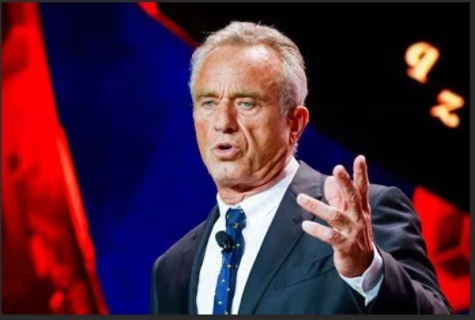
When Barack Obama considered Robert F. Kennedy Jr. for a cabinet position back in 2008, the media largely praised the move. Obama’s selection process for his administration was highly scrutinized but generally applauded, and Politico reported that Obama’s interest in RFK Jr. for the EPA head was “shrewd.” Democratic advisors saw Kennedy’s environmental advocacy as a boon, something that could charm liberal voters who were eager for bold environmental policy after the Bush years forward to today, when President-elect Donald Trump appointed RFK Jr. to lead the Department of Health and Human Services (HHS), and the media’s reaction could not be more different. Now, Kennedy is labeled “controversial” and “dangerous.” Once seen as an asset, Kennedy’s environmental and public health stances are now scrutinized, and his reputation is highlighted with terms like “misinformation” and “discredited theories” .
2008 Politco: Obama considers stars for Cabinet
In criticism is Colorado Governor Jared Polis, a Democrat, who surprisingly voiced support for Trump’s pick of Kennedy. On social media, Polis praised Kennedy’s commitment to challenging Big Pharma and championing health reforms—stances he argued align with public health and consumer protection. But this praise quickly turned into backlash. Media outlets highlighted Polis’s previous critiques of Kennedy, especially regarding vaccines, making it clear they see Kennedy’s history of vaccine skepticism as a dealbreaker.
The backlash to Polis’s support exposes an apparent double standard. In 2008, media outlets and officials were comfortable with RFK Jr.’s environmental views, as well as his strong opinions against corporations. But when Trump selects Kennedy to promote similar policies at HHS, the media’s tone shifts dramatically. This shift suggests that media criticism is tied to partisanship, not policy.
For instance, the NJ.com article highlights an almost mocking tone in its coverage of Polis’s comments. Journalists cite a flood of social media comments, implying that it’s “remarkable” for Polis, as an openly gay politician, to support Kennedy given Kennedy’s controversial statements about public health and the LGBTQ+ community. But the real focus seems to be the fact that Polis, a Democrat, dared to support a Trump appointment—an action viewed almost as a betrayal by the media’s standards .
The difference in covern Obama’s and Trump’s interest in Kennedy raises questions about the media’s role in shaping public opinion. Obama’s Kennedy pick, which Politico framed as “shrewd,” was celebrated for addressing liberals’ environmental concerns. Today, however, that same liberal media establishment portrays Kennedy’s views as a liability and amplifies every critique of his beliefs.
So why the shift? When Obama considered Kennedy, he was constructing a legacy of environmental reform and social progress that aligned with media narratives. But with Trump, the narrative flips: any move he makes, no matter how similar to a Democrat’s, is painted as reckless or dangerous. Media coverage today amplifies public fears and controversies surrounding Kennedy to make Trump’s appointment seem irresponsible.
Ultimately, these double standards reveal the media’s underlying bias. Rather than focusing on Kennedy’s qualifications or potential for reform, the conversation is centered on his association with Trump. The same RFK Jr. who was once seen as an environmental warrior is now dismissed by the same outlets that once celebrated his nomination.
In this case, the media’s outrage isn’t about RFK Jr.’s qualifications; it’s about pushing a narrative. When Obama tapped Kennedy, the media encouraged it as a smart choice. But now, with Trump, the same choice is a crisis. This hypocrisy isn’t just a bad look for journalism; it’s an example of how media priorities often revolve around political affiliations, rather than consistent standards.
